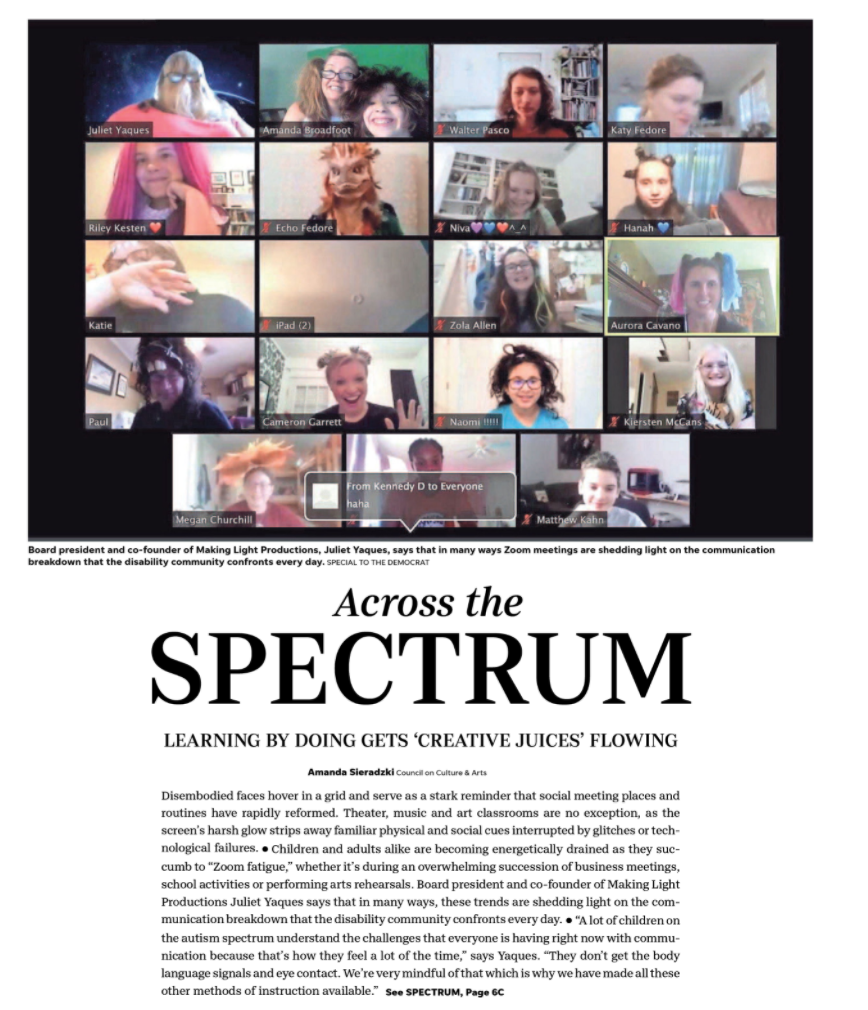 Disembodied faces hover in a grid and serve as a stark reminder that social meeting places and routines have rapidly reformed. Theater, music and art classrooms are no exception, as the screen’s harsh glow strips away familiar physical and social cues interrupted by glitches or technological failures.
Disembodied faces hover in a grid and serve as a stark reminder that social meeting places and routines have rapidly reformed. Theater, music and art classrooms are no exception, as the screen’s harsh glow strips away familiar physical and social cues interrupted by glitches or technological failures.
Children and adults alike are becoming energetically drained as they succumb to “Zoom fatigue,” whether it’s during an overwhelming succession of business meetings, school activities or performing arts rehearsals. Board president and co-founder of Making Light Productions Juliet Yaques says that in many ways, these trends are shedding light on the communication breakdown that the disability community confronts every day.
“A lot of children on the autism spectrum understand the challenges that everyone is having right now with communication because that’s how they feel a lot of the time,” says Yaques. “They don’t get the body language signals and eye contact. We’re very mindful of that which is why we have made all these other methods of instruction available.”
Yaques’ daughter is a young artist with autism and was her primary motivation behind launching a visual and performing arts nonprofit organization for all abilities with co-founder Amanda Broadfoot in 2016. When the COVID-19 pandemic shut down their normal operations mid-March, they quickly switched gears for their spring and summer season.
Private lessons and group classes in theater, dance, art and music were shifted online, while still producing a full season of original shows. These include the wacky, at-home hygiene musical, “The Show Must Go Online” which premiered on June 10 and a joint art-theater effort in making “Alice’s Adventures in Wonderland” on June 19 as a puppet show.
In addition to online meetings, Yaques says teachers have packaged their lessons using learning tools that allow students to read and watch materials independently.
“Children that I thought really loved performing in front of an audience do even better without one, when they get to record shows in their own time,” says Yaques. “That’s something we will keep in mind as we move forward with all these new options for adaptability that we can incorporate into shows. Audiences will see a lot more leveraging of technology to make theater more accessible.”
Read the rest of the story by visiting the Tallahassee Democrat
or read more by downloading the article here